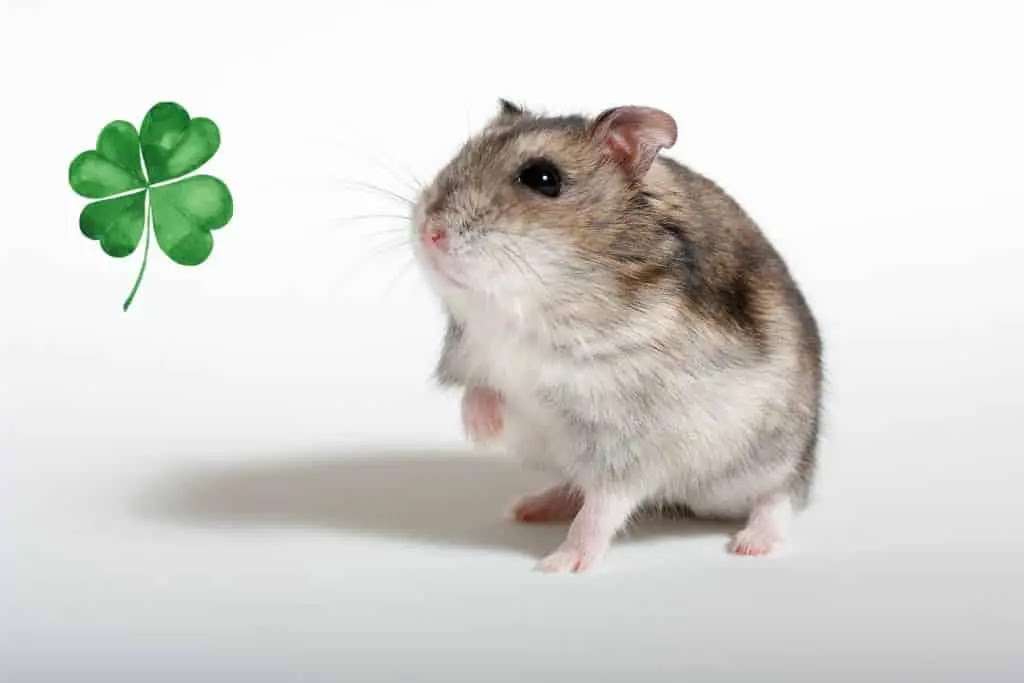Can Hamsters Eat Dill? A Detailed Exploration of the Benefits and Risks
Caring for your cherished hamster involves meticulous attention to their diet. Hamsters, as omnivores, thrive on a well-balanced diet to maintain their health. A common query among hamster owners revolves around the safety of including dill, the aromatic herb commonly used in cooking, in their pet's dietary repertoire. In this comprehensive guide, we will embark on a journey into the world of dill, scrutinizing its nutritional content and assessing whether hamsters can savor this herb. We will also venture into the realm of potential benefits, associated risks, identification of dill poisoning symptoms, appropriate serving sizes, alternative options, and address frequently asked questions regarding dill and its compatibility with hamsters.
Can Hamsters Eat Dill? A Thorough Exploration of Dill's World
Decoding Dill's Composition
Dill, scientifically known as Anethum graveolens, is an aromatic herb distinguished by its delicate, feathery leaves and petite, flavorful seeds. It has carved a niche in culinary circles for its unique taste and fragrant allure.
Unpacking Dill's Nutritional Profile
Dill transcends its role as a mere flavor enhancer; it offers a substantial nutritional profile. Here's a breakdown of the essential nutrients found in dill:
- Vitamins: Dill stands as a source of indispensable vitamins, particularly vitamin C and vitamin A.
- Minerals: Within dill's makeup lie crucial minerals, including calcium, potassium, and iron.
- Dietary Fiber: Dill contributes dietary fiber, an ally in promoting digestive well-being.
Can Hamsters Eat Dill?
The Clear-Cut Response
Indeed, hamsters can indulge in dill without hesitation, provided it is administered in moderation and integrated thoughtfully into their dietary regimen. Now, let's delve into why dill earns its place as a suitable herb for our hamster companions.
The Case for Dill
Dill earns its stripes as a hamster-friendly herb for several compelling reasons:
- Nutrient-Rich: Dill packs a punch in the vitamins and minerals department, bestowing hamsters with an array of health benefits.
- Palate Pleaser: The taste and aroma of dill often strike a harmonious chord with many hamsters, making it an enticing dietary option.
Advantages of Including Dill in Your Hamster's Diet
Exploring the Perks
Incorporating dill into your hamster's culinary repertoire may unlock a plethora of potential advantages:
- Vitamins: Dill serves as a wellspring of vital vitamins, including vitamin C and vitamin A, which bolster your hamster's immune system and overall vitality.
- Minerals: The mineral bounty found in dill, encompassing calcium and potassium, contributes to the overall health of your hamster.
Potential Pitfalls of Feeding Dill to Hamsters
Exercising Caution
While dill boasts a stellar nutritional profile, exercising caution is imperative due to potential pitfalls:
- Pesticide Peril: Dill sourced from gardens or farms may carry traces of harmful pesticides or herbicides. A thorough washing or opting for organic dill is the way to go.
- Digestive Sensitivity: Some hamsters may possess sensitive digestive systems and could experience discomfort when introduced to new foods like dill.
Navigating the Consequences of Overindulgence
Feeding your hamster an excess of dill may lead to digestive disturbances, such as diarrhea or upset stomach. To stave off overindulgence, introduce dill gradually into their diet.
Spotting the Telltale Signs of Dill Poisoning in Hamsters
Indicators to Watch For
Instances of dill poisoning among hamsters are rare, mainly due to dill's overall safety profile. Nonetheless, if a hamster ingests an excessive amount of dill or dill treated with harmful substances, they may exhibit the following symptoms:
- Digestive Distress: This may manifest as diarrhea, bloating, or alterations in stool consistency.
- Lethargy: An unusually lethargic or less active demeanor could signal an issue.
Determining the Appropriate Dill Dosage
Moderation Remains Paramount
As with any treat, moderation is the cornerstone when introducing dill into your hamster's diet. Begin with a small portion of fresh dill as an occasional indulgence. Restrict dill consumption to approximately 1 to 2 times weekly, ensuring it constitutes no more than 10% of your hamster's total dietary intake.
Exploring Substitutes and Supplementary Fare
Diversify the Diet
In addition to dill, hamsters can relish an array of other foods to maintain dietary balance, including:
- Leafy Greens: Spinach, kale, and parsley offer essential vitamins and minerals.
- Fruits: Apples, pears, and strawberries present a blend of natural sugars and antioxidants.
- Vegetables: Carrots, bell peppers, and cucumbers supply crunchy and nutritious alternatives.
Esteemed Hamster Staples
Commercially available hamster pellets designed to provide vital nutrients serve as a fundamental dietary component. Additionally, treats like pumpkin seeds and small servings of unseasoned cooked meat can make sporadic appearances.
In Conclusion
In summation, dill can constitute a flavorful and nutritious inclusion in your hamster's diet when administered judiciously. It bestows essential vitamins and minerals that bolster overall well-being. However, it is paramount to tread cautiously by ensuring the dill remains uncontaminated by pesticides or additives. As a prudent practice, consulting your veterinarian before incorporating new foods into your hamster's diet is advisable. By adhering to these guidelines, you can treat your furry companion to the occasional dill indulgence while safeguarding their health and happiness.


Nhận xét
Đăng nhận xét